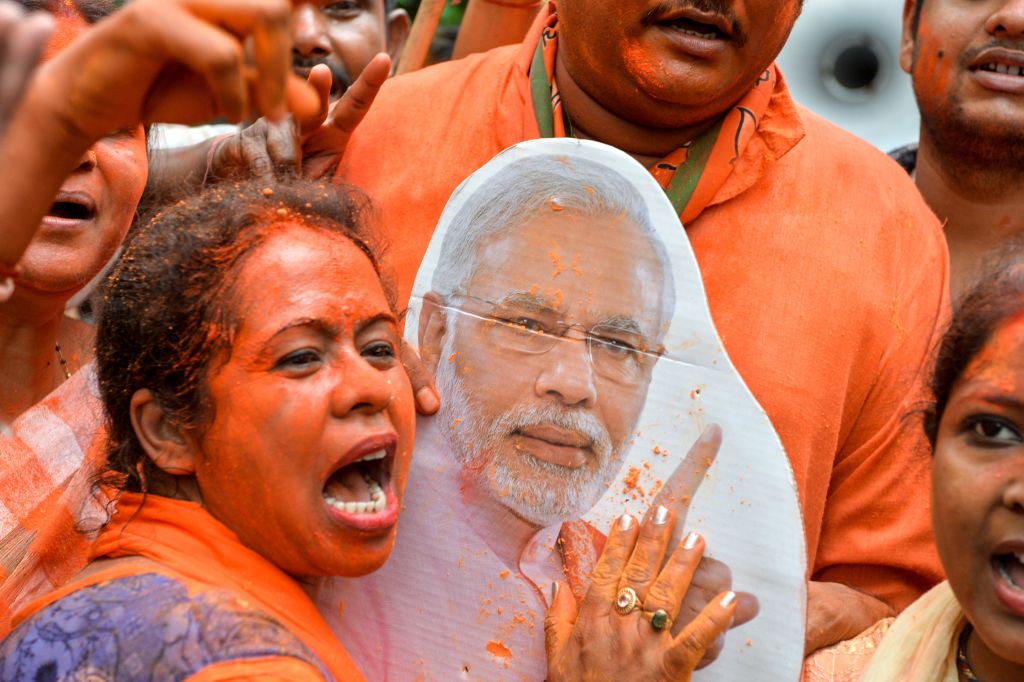Indian Prime Minister Narendra Modi appears headed for landslide victory


A free daily email with the biggest news stories of the day – and the best features from TheWeek.com
You are now subscribed
Your newsletter sign-up was successful
Indian Prime Minister Narendra Modi's Hindu-nationalist Bharatiya Janata Party (BJP) declared victory on Thursday as early results from India's six-week-long election showed it headed toward a landslide win over the main opposition Congress party and powerful regional parties. Full results aren't expected until Thursday night or later, but partial results have BJP ahead in more than 300 of 542 seats in the lower house of Parliament, and if Modi's party ended up with at least 272 seats, he can govern in his second term without a coalition; BJP won 282 seats in 2014. Congress is ahead in fewer than 100 seats. More than 600 million people voted in the elections.
The election was widely viewed as a referendum on Modi, a polarizing but charismatic figure who is adept at using social media but is blamed for increasing ethnic and religious divisions in India. The country's economy has been underperforming in the past few years, but Modi focused on national security during the campaign, a major topic amid skirmishes with Pakistan in Kashmir.
"Backed by enormous resources, the BJP's organizational machinery, employing all modern methods of communication, is now difficult to beat," writes BBC News correspondent Soutik Biswas. If Congress wants to recover, it will have to work harder and "build an alternative narrative to take on the BJP's campaign, which deftly combined nationalism, development, and religious polarization."
The Week
Escape your echo chamber. Get the facts behind the news, plus analysis from multiple perspectives.

Sign up for The Week's Free Newsletters
From our morning news briefing to a weekly Good News Newsletter, get the best of The Week delivered directly to your inbox.
From our morning news briefing to a weekly Good News Newsletter, get the best of The Week delivered directly to your inbox.
A free daily email with the biggest news stories of the day – and the best features from TheWeek.com
Peter has worked as a news and culture writer and editor at The Week since the site's launch in 2008. He covers politics, world affairs, religion and cultural currents. His journalism career began as a copy editor at a financial newswire and has included editorial positions at The New York Times Magazine, Facts on File, and Oregon State University.
